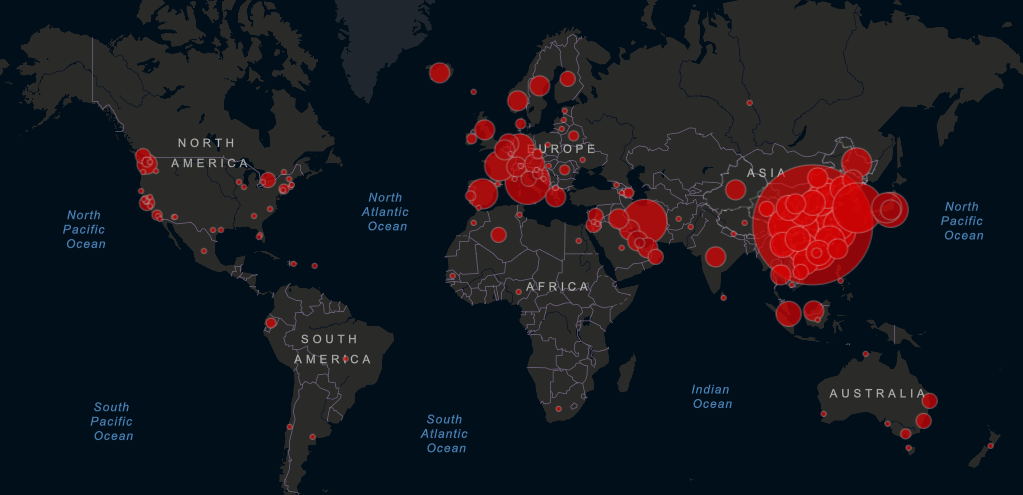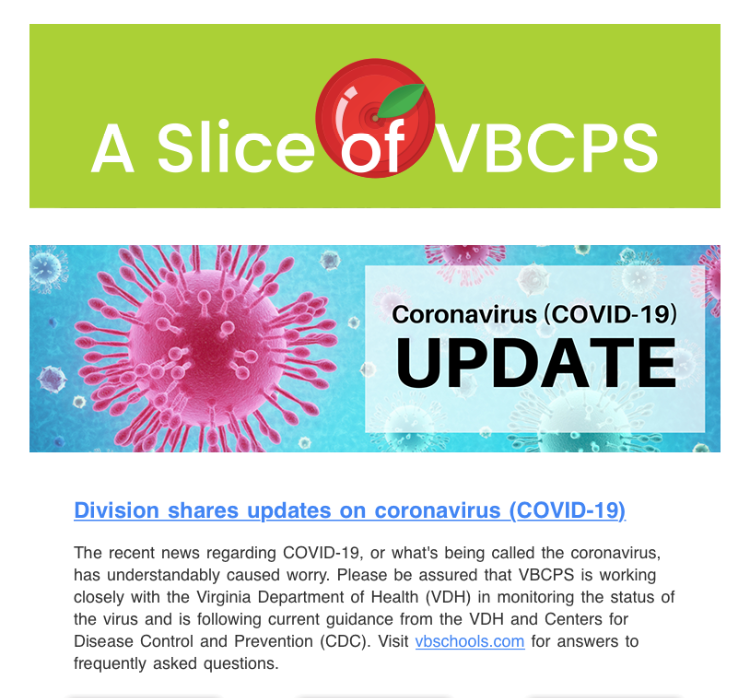The Coronavirus: What it is and How it Impacts You
March 6, 2020
From Snapchat stories to worldwide news, the Coronavirus (COVID-19) is nothing short of being known. Everybody should know of the causes, effects, symptoms, and treatments in order to stay safe throughout the year.
At the end of December, Chinese health organizations were met with multiple cases of pneumonia (an
infection in the lungs which fill up with fluid and/or puss causing difficulty in breathing). Originally, the cases were thought to be associated with an exposure of seafood in Wuhan, the capital of China’s Hubei province. On January 7, 2020, the cases were confirmed to be the first sightings of the COVID-19.
The Center for Disease Control (CDC) says that: “Coronaviruses are a large family of viruses that are common in people and many different species of animals, including camels, cattle, cats, and bats. Rarely, animal coronaviruses can infect people and then spread between people such as with MERS-CoV [Middle Eastern Respiratory Syndrome], SARS-CoV [Severe Acute Respiratory Syndrome], and now with this new virus (named SARS-CoV-2, or COVID-19).”

The picture shows citizens of China wearing flu masks in an attempt to not catch the Coronavirus. The World Health Organization, says that masks, however, are not meant for people not trying to catch the virus, but rather for people with the virus trying not to spread it.
Throughout the month of January, COVID-19 spread across different continents including Asia, Europe, and North America. Precautions were taken by setting up designated quarantine sites, initiating screenings of passengers arriving from Wuhan, and terminating international flights in hopes to prevent the spread of the Coronavirus.
As of March 5, there are about 41,300 active cases of the approximate 96,800 total cases according to the World Health Organization. About 84% of people who have it are in mild condition and about 16% are in critical/serious condition. Within the 57,200 closed cases, 94% have been discharged and are going through recovery and only 6% of cases have resulted in death. A vast majority of cases and deaths have taken place in China. There are 162 confirmed cases in the United States, and only 11 deaths.
As said by Stat. News, the vast majority of cases (87%) taking place in China were people ages 30 to 79. Less than 10% of cases were in their 20s, 1.2% were teens, and 0.9% were 9 or younger. China’s CDC found that only 2.3% of confirmed cases have passed away. The presence of other diseases, a weaker immune system, or simply substandard health can be the reason that people 80 or older have a 15% fatality rate.
In comparison, Live Science has said that common flu, also called influenza, has caused about 31 million illnesses, 310,000 hospitalizations, and 18,00 deaths this season.

John Hopkins Center for Science and Engineering. offers a live map that tracks and gives the number of confirmed cases of COVID-19 around the world. The map also keeps a running total of deaths and is constantly updated.
The CDC has developed a new testing kit to test patient specimens (bodily fluids) that is able to test for the COVID-19. According to the CDC: “This test is intended for use with upper and lower respiratory specimens collected from persons who meet CDC criteria for COVID-19 testing. CDC’s test kit is intended for use by laboratories designated by CDC as qualified, and in the United States, certified under the Clinical Laboratory Improvement Amendments (CLIA) to perform high complexity tests.”
The kits will be shipped out to laboratories which the CDC has declared qualified. This includes U.S. state and local public health labs, Department of Defense (DOD) labs, and select international laboratories. They are also working to develop a serology test, which will look for the presence of antibodies (specific proteins made in response to infections).

The testing kits issued by the CDC to qualified laboratories and will be distributed through the through the International Reagent Resource (IRR).
Similar to any other virus or sickness, the COVID-19 can be spread through people in close contact (within about six feet) and respiratory particles from a person coughing or sneezing and then coming in contact with another person. Virginia Beach City Public Schools (VBCPS) is working closely with the Virginia Department of Health (VDH) and the CDC in monitoring the status. VBCPS sent out a newsletter to keep students, parents, and teachers informed. According to the CDC in the newsletter, there are no current cases of the COVID-19 in Virginia. In order to keep that possible, it is highly recommended to do the following:
- Wash hands with soap and water for at least 20 seconds
- Do not touch eyes, nose, or mouth with unwashed hands,
- Cover coughs and sneezes with tissues
- Take flu antivirals if they have been prescribed for the flu
- Stay home if you are sick
- Clean and disinfect frequently touched objects and surfaces
It is advised for individuals to let a healthcare professional know if they feel as if they, or others, are at risk for the coronavirus. More specifically, people who have developed a fever, are experiencing symptoms of respiratory illness, and have come in contact with someone who either has either been diagnosed with the virus or has traveled to / lives in an area with an ongoing spread are advised to visit their doctor.









